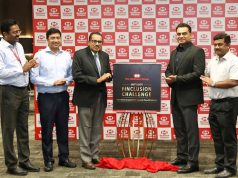Relationship issues and anxiety has emerged as top concerns in the age group 26 to 40-year-olds, on the backdrop of the evolving mental health landscape in India, reveals a comprehensive analysis, done by Mpower, a unit of the Aditya Birla Education Trust and a leading mental wellness provider.
This comprehensive analysis, released on the occasion of its 9th anniversary is based on over 1,08,779 calls, provides critical insights into the mental health concerns affecting individuals across India.
Relationship issues emerged as the most pressing concern for those seeking mental health support in Delhi accounting for 27% of all callers, followed by anxiety at 26%. This underscores the significant impact of interpersonal challenges and stress on the mental well-being of Delhi residents in the age group of 26 to 40 years.
Individuals aged 18-25 account for a significant portion of callers, highlighting the urgent need for targeted mental health interventions for young adults. While men constitute 41% of callers and women 51% of those seeking support, emphasizing the importance of addressing mental health concerns among both genders in Delhi.
Compared to national trends, Delhi residents exhibit a distinct profile. The 26-40 age group constitutes a larger segment of callers in Delhi (52% vs. 39% nationally), while the 18-25 age group stands at 36% and is the 2nd largest age group of callers from Delhi. Notably, Relationship Problems emerge as a more prominent concern in Delhi, reflecting the unique pressures and complexities of urban living.
Dr. Ankit Gautam, Psychiatrist at Mpower center in Delhi stated: “The high prevalence of relationship issues among Delhi residents reflects the unique pressures and complexities of urban living. Factors such as fast-paced lifestyles, competitive environments, and changing social dynamics can significantly impact interpersonal relationships and contribute to mental health challenges. Additionally, the high number of calls from young adults highlights the need for increased awareness and access to mental health resources among this demographic. We have also seen a lot of cases in the above age groups pertaining to addiction being one of the top concerns amongst youngsters.”
Dr. Gautam also added, “To effectively manage common mental health stressors, building resilience is crucial. This can be achieved through practices like meditation, yoga, regular physical exercise, maintaining a healthy diet, prioritizing sleep hygiene, and cultivating strong social support. It’s essential to self-monitor your mood, anxiety levels, and any unusual thoughts. If these concerns escalate, consulting a psychiatrist or psychologist is recommended.
If Mental health concerns are not diagnosed early the common stressors can often lead to adjustment disorders and over prolonged neglect they can also contribute to more serious conditions like Major Depressive Disorder or Addiction Disorders, Dr. Gautam concluded.
Disclaimer: This media release is auto-generated. The CSR Journal is not responsible for the content.













